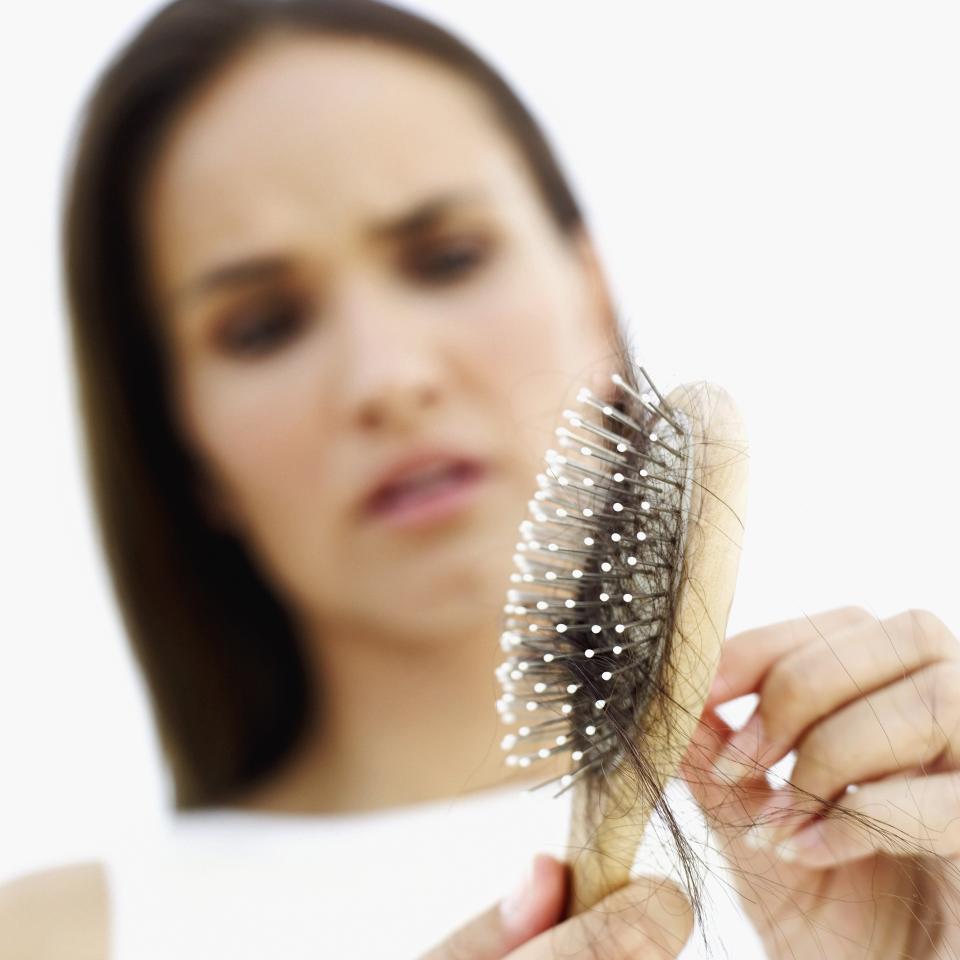How to Take Care of Thinning Hair
Hair loss is a major problem for men and women across the globe. In fact, according to a 2014 survey by the International Society of Hair Restoration Surgery, as many as 320 million people in the United States—that's more than one in five Americans—suffer from hair loss, and not all of them are classified as "elderly." There are many reasons why a person can start losing his or her hair. The most common cause, however, is androgenic alopecia, also known as male or female pattern baldness, notes Andrew Fitzsimons, a celebrity hairstylist and the NatureLab Tokyo brand ambassador. "Androgenic alopecia is hereditary, so some people are simply more prone to hair loss than others," he says. "Other causes of hair thinning include serious disease, extreme stress, traction alopecia (caused by tight hairstyles that stress the follicles—think braids and tight ponytails), adverse reactions to certain medications, and even stressful events, like childbirth."

Getty Images
No matter the cause, thinning hair is distressing on more than just a physical level. "Our hair is so intrinsically linked to our mood and identity that losing it can really affect someone's day-to-day wellbeing and self-confidence," explains Anabel Kingsley, consultant trichologist and brand president for Philip Kingsley. While treating thinning hair doesn't involve quick fixes, there are plenty of solutions experts rely on when it comes to caring for thinning hair. Here, they share some of their go-to strategies.
Related: Female Hair Loss, Explained: Why You're Losing Your Hair and What to Do About It
Boost hair growth from within.
Hair growth is heavily reliant on diet. In fact, Kingsley warns that even a small deficiency can impact hair growth. She recommends eating a healthy, balanced diet, rich in proteins, complex carbohydrates and iron. "You may also wish to take a nutritional supplement to give your hair a helping hand, such as a protein supplement," she says. "Proteins are the building blocks of your strands and hardly anyone eats enough protein from a hair growth standpoint."
Manage your stress levels.
Plenty of studies, including one published in the journal PLoS One, support the notion that stress can directly impact hair loss. "Stress can inadvertently raise androgen (male hormone) levels, which can exacerbate reduced hair volume," says Kingsley. "Stress can also impact nutrient absorption, the health of your scalp, and your immune system—all of which can affect hair growth." Try your best to keep your stress levels at bay by incorporating stress-relieving activities into your schedule, such as exercise, yoga, meditation, and reading.
Care for the condition of your hair.
Thin hair tends to be finer, which makes it more prone to damage and breakage. To combat this, Kingsley recommends using a pre-shampoo conditioning treatment weekly to strengthen strands. "Pre-shampoo treatments are best as they do not weigh your hair down, while heavy post-shampoo treatments can," she says. "I recommend our Elasticizer ($39.43, amazon.com), which plumps the hair shaft with moisture, adding bounce, elasticity, and body."
Use targeted topicals.
Kingsely advises targeting the hair follicles directly with daily topical products to help prevent shedding. "At our clinic in New York, we address reduced hair volume with a combination of prescription topical Minoxidil and anti-androgen scalp drops," she says. "For our retail range, we formulated Tricho 7 Scalp Drops ($89, bluemercury.com) which optimize the scalp environment and help to protect hair follicles from the effects of male hormones."
Use a brush with boar bristles.
Although they tend to be pricier than their synthetic counterparts, boar bristle brushes pull out less hair, explains Penny James, International Association of Trichologists (IAT)-certified trichologist and owner of Penny James Salon in New York City. "It's the best way to keep thin hair looking healthy, shiny, thicker, and at its very best," she adds.
Understand the source of your hair loss.
If your attempts to maintain your hair with conventional methods aren't working, consider seeking the help of an IAT trichologist. "We are trained to study the structure of hair, biology, chemistry, and science of the body," says James. "Once you have been seen by a trichologist, we can determine what the next steps are. [You might need to have] blood work or further tests done to rule out medical issues."

